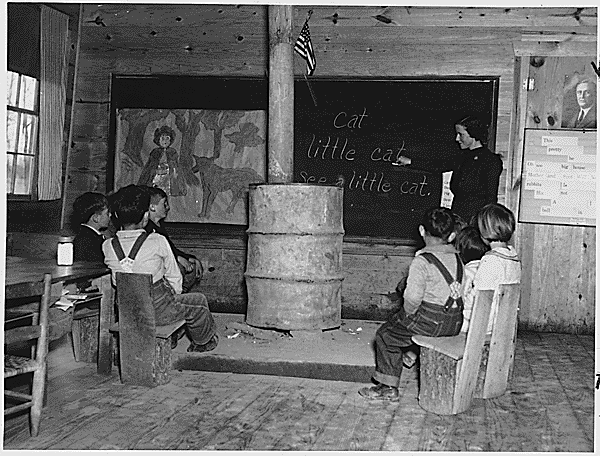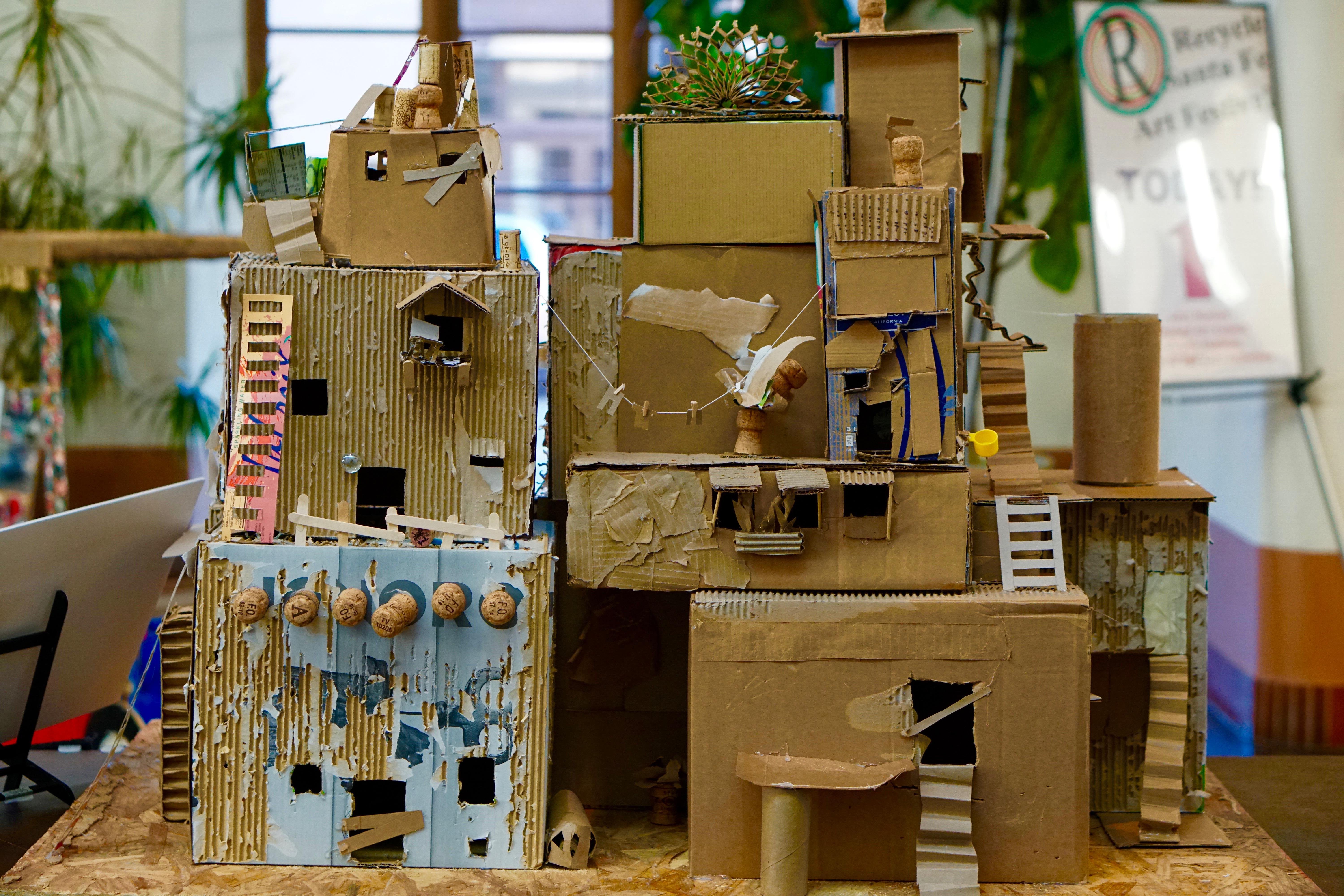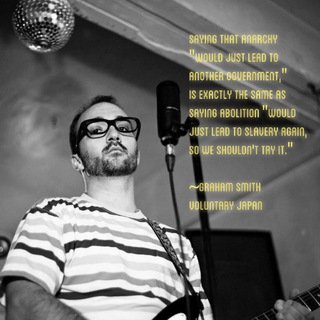Playing a game with my son (at his request) using hiragana flash cards.
In fact, I would argue that modern, compulsory schooling is often a detriment to a child's development as a learner and reader.
I write this article with my son in mind, who, now at age four, can read two of the three basic Japanese language character sets (hiragana and katakana), knows some of the third (the Chinese characters system not taught to children until elementary school), and is also reading English.
The children his same age that I teach at the kindergartens here in Japan appear to be at a lower level, comparatively, in this area. I do not write this piece to brag, or even to denigrate public schools (which I despise, for many reasons), but to point out that learning to read is as natural as learning to walk, run, or swim, when it comes to a child's self-interested, personal development.

My son's world, at present.
Why "schooling" does kids a major disservice.
When a child goes to school, they are often taught that they must earn to read, as an academic endeavor separate, disjointed, and disconnected from the rest of life. Reading is taught as a "subject," and not as an integral part of being human.
For example, my son is really into the original Mega Man games for Nintendo, currently, and learned to read the word "man" from seeing the names of the enemy bosses on the game repeatedly: "Cut Man," "Air Man," "Metal Man," "Spark Man," etc. I didn't realize he was absorbing all this until he started picking out these words by himself while out in public. The game is something he cares about, and that he has an interest in.
READING IS THUS JUST A SUBSIDIARY TOOL WITH WHICH HE CAN CONTINUE TO EXPAND HIS KNOWLEDGE BASE AND PURSUE HIS INTERESTS.
What happens at school is typically this:
Okay, kids! Now we will practice reading!......Bobby! Bobby! Come back over here and sit down! What? There's a bug on the window sill? You want to know what it is??? NOT NOW! IT IS READING TIME!
A parent (due to not having the absurd responsibility of meeting the various needs--emotional, physical, and otherwise--of 20 to 30 kids whilst simultaneously being expected to "teach" them) could have whipped out the insect identification handbook and shown Bobby exactly what the insect was. Bobby would have seen the name in print, and, if really interested in bugs, probably would have continued down that path of inquiry for awhile, picking up names, and acquiring a desire to learn to read so as to better be able to tell which bug was what in the future.

At least this was a little more human than the "modern" classroom, I guess.
If no one "teaches" them, how will they learn?
Well, in short, they will ask. Neurotypical children will naturally follow their curiosity and passions into the realm of reading, as they see that signs, symbols, and text are all around them, and are used by adults to do very important things every day. Humans naturally understand the use of symbols. This begins from the first moment a child learns to identify a cartoon bunny rabbit or other animal, for example.
Life is full of symbols, and written text is just a natural extrapolation of this. Children want to be empowered too, and to be able to make more and more sense of the world around them. They can sense from the beginning, even if only intuitively, that language is power.
Of course parents should read to their children as much as possible. This is a great opportunity to bond, and builds a bridge between the child and parent wrapped and infused with literature and text. Furthermore, the more a child sees his or her parents reading, the more that child will come to understand that reading is something very important.
Flash cards and other learning tools are also great, if used as tools and not as ends in and of themselves. My wife has done a fantastic job drilling my son on the aforementioned Japanese character sets. He needs to know these to be able to successfully participate in written communication and creative literary enterprise here in this country.

Having fun is the most important thing, because learning is fun.
A lot of schools and educational programs brag that they "make learning fun!" This always makes me laugh. If they are so lost as to imagine that learning is not a self-rewarding, natural-as-breathing, interesting and amusing pastime, then they are already pretty lost. Probably this can be attributed to these folks having undergone a lifetime of indoctrination and propaganda asserting that learning happens at school exclusively and the knowledge, that typically, school is one of the most "un-fun" places there is.
(My son has just interrupted my writing here to ask me whether the Mega Man password I wrote down from our last session was "B 2 or B 5?" Now he is learning that reading the messy handwriting of others can sometimes be a challenge, too. See how natural all this is?????!!!!)
The reason my wife's approach with my son has worked is because they are both having FUN. As long as it is fun, learning is going to be happening. It is a game, and not a test where failure to identify a card means my son is "inadequate." It is just a game to help him learn, and he knows that. When he gets a word or character right, we celebrate with him. When he has some difficulty identifying a character, we help him. The goal is never just to "get a sticker" or to avoid being embarrassed at having the "wrong answer" in front of an impatient teacher or his peers. The goal is to learn, and "wrong answers" are just useful guideposts in getting on to the right one.
Please enjoy this video of my son reading a Mega Man II Password!
NOTE: I realize that some may take issue with my assertion that learning to read is as natural as learning to walk. Just to clarify, and avoid misunderstanding: What I mean is that learning to walk is a natural progression and result of a child's desire to move. Learning to read is, in exactly the same way, a natural progression and result of a child's desire to know.
For further reading on this topic, I highly recommend this excellent article:
http://education.penelopetrunk.com/2012/04/16/you-dont-need-to-teach-reading/
(Thanks for stopping by! If you missed the last Unschooling Blog, "Montessori Update, and the CRITICAL Difference Between Learner-Centered (Natural) and Top-Down Approaches to Education," you can find it HERE.)
~KafkA
Graham Smith is a Voluntaryist activist, creator, and peaceful parent residing in Niigata City, Japan. Graham runs the "Voluntary Japan" online initiative with a presence here on Steem, as well as Facebook and Twitter. (Hit me up so I can stop talking about myself in the third person!)




